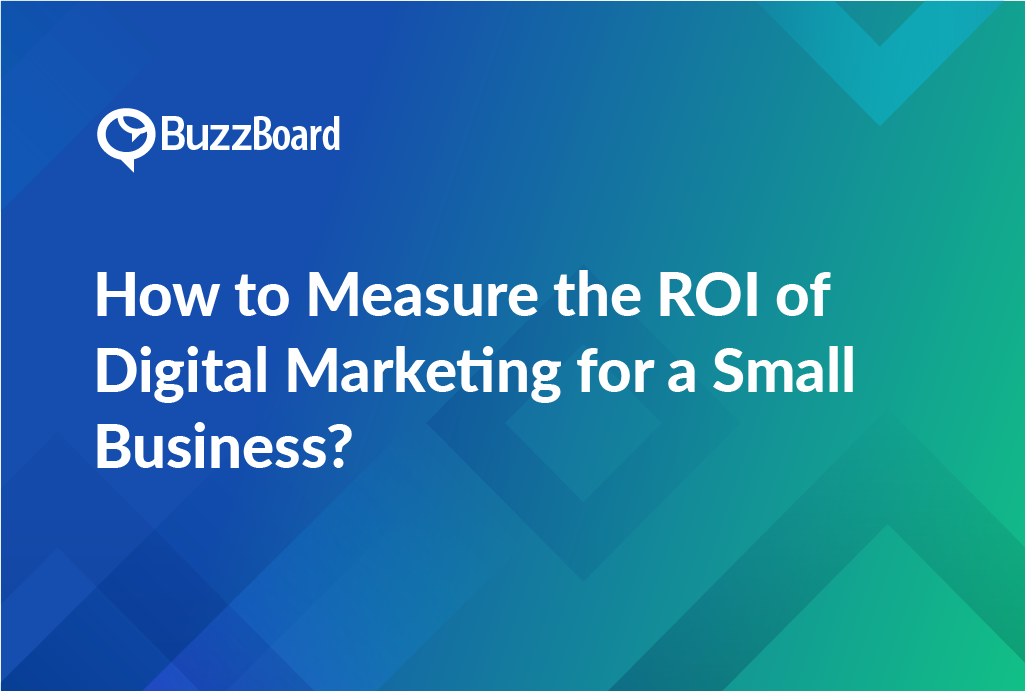Defining ROI in the Context of Small Business Digital Marketing
In digital marketing, understanding the concept of Return on Investment (ROI) is crucial, particularly for small businesses. It ensures that investments in digital marketing lead to quantifiable business growth.
In digital marketing parlance, ROI exhibits the profitability of the digital marketing efforts. Defined as a percentage, ROI is the ratio between the net profit and the cost of investment. It’s crucial to note that the evaluation process may differ between small businesses and large enterprises. For example, significant ROI for a small business might entail driving steady traffic to their website, while for a large corporation, it might mean more significant digital marketing sales.
Digital marketing agencies help small businesses leverage their online presence to increase ROI. They offer a gamut of services such as website design, Search Engine Optimization (SEO), and Pay-Per-Click (PPC), all aimed at boosting online visibility and enhancing customer engagement. The more the engagement, the higher the likelihood of businesses witnessing a return on their investment.
The crux lies in selecting an agency that comprehends the unique needs and challenges of your small business, ranging from budget restrictions to targeted market scope. Beware of agencies that promise an immediate ROI surge. Remember, digital marketing is a marathon, not a sprint.
In essence, understanding ROI within the context of small business digital marketing ensures your marketing dollars are well invested. Prioritize devising a strategic roadmap that guarantees gradual growth and enhances digital marketing sales to maximize your digital marketing investment.
Tracking Key Performance Indicators (KPIs) for Digital Campaigns
In today’s digital business landscape, the influence of digital marketing campaigns on small businesses is significant. The key to maximizing your return on investment (ROI) in any digital marketing operation is effectively tracking your Key Performance Indicators (KPIs).
KPIs serve as guideposts, allowing businesses to gauge their digital marketing efforts’ effectiveness. They present a performance overview, enabling decision-makers at digital marketing agencies to make necessary adjustments. The right KPIs provide robust, actionable insights, helping businesses optimize their digital marketing strategies for maximum ROI.
With customers increasingly transitioning to digital platforms, small businesses are utilizing the expertise of digital marketing agencies to enhance their reach. The sales of these agencies are largely based on their ability to demonstrate tangible returns on client investments.
By monitoring KPIs, businesses can offer quantifiable evidence of their digital marketing campaigns’ success, establishing credibility, solidifying client relationships, and boosting sales.
Fully tapping into the potential of KPI tracking requires a profound understanding of various metrics, their impact, and how to use them effectively. This task can be challenging for many small businesses, but the return in terms of digital marketing ROI is significant.
Calculating ROI: Costs vs. Revenue Generated
Calculating ROI (Return on Investment) is an essential metric for small businesses, especially regarding digital marketing sales. A positive ROI indicates your marketing efforts generate profit, while a negative number signifies a loss. This information is crucial and should not be ignored.
The ROI metric is determined by comparing costs against the generated revenue. To calculate this, subtract the investment’s initial cost (“cost”) from the final return (“revenue generated”). Then, divide that result by the original cost. Using this formula, ROI can be expressed as a percentage, simplifying comparisons against other investments or business opportunities.
For example, a digital marketing agency initiating an online ad campaign costing $1,000 that results in $5,000 sales revenue has an ROI calculated as [(5,000 – 1,000) ÷ 1,000] x 100 = 400%. This represents a 4-fold return on the initial investment, indicating a substantial profit.
As salespeople at digital marketing agencies that cater to small and local businesses, understanding this concept is crucial. Knowing how to calculate and effectively present ROI can establish trust with your clients, showing measurable results and strengthening your sales approach.
Using Analytics Tools to Monitor Campaign Performance
Understanding your campaign performance is a critical element for digital marketing agencies and small businesses. Analytics tools provide a comprehensive method for tracking your campaign’s performance, offering detailed insights into areas of success and areas that need improvement.
These tools are essential in determining the return on investment (ROI). Small businesses, in particular, can use these tools to evaluate the effectiveness of their marketing strategies.
Digital marketing trends are always evolving, and it’s important for agencies to master the use of these analytical tools. This expertise can enhance ROI, engage small business customers effectively, understand customer behaviors, and make data-driven sales decisions.
Regardless of your expertise level with these digital marketing tools, it’s crucial to comprehend how they can reveal valuable insights about your digital campaign’s performance. This understanding can aid in making strategic decisions that impact your sales outcomes and overall growth.
Analytics tools don’t just streamline the process of monitoring campaign performance; they also bring precision and accuracy to your marketing endeavors, thereby maximizing the value you receive from your digital marketing investment. Therefore, it’s important to hone your skills with these tools and diligently assess your campaign’s performance through rigorous data analysis.
Adjusting Strategies Based on ROI Insights
Understanding and efficiently leveraging ROI, or Return on Investment, insights is a valuable asset for sales representatives at digital marketing agencies. This is particularly true when the target demographic includes small businesses where maximizing returns on every dollar spent is critical.
If you are part of this group, your objective extends beyond selling to these businesses. You’re tasked with helping them successfully navigate their digital marketing efforts to ensure their investment yields substantial returns. A key gauge of success in this arena is identifying the ROI, which aids significantly in determining which strategies truly work and which do not.
Consider this scenario – a small business spends a specific amount on, say, Facebook advertisements through your agency. They anticipate a certain return. Calculating ROI provides tangible evidence of this performance and its subsequent impact on the business. As a sales representative, it paves the way for you to illustrate the marketing efficiency and monetary gains achieved through your digital marketing strategies.
Harnessing ROI insights and tweaking strategies based on these can make a significant difference for small businesses. By focusing on strategies yielding a higher ROI, resources can be used more efficiently, helping businesses reach their goals at a fraction of the cost and ahead of schedule.
Primarily, you should always be prepared to adjust your approach based on ROI data. A static approach can yield missed opportunities. In the constantly evolving digital marketing landscape, adaptability and data-driven decisions reign supreme.







